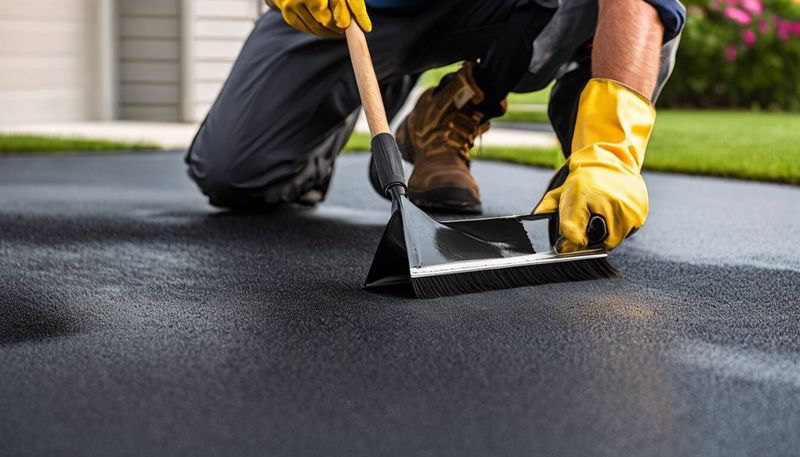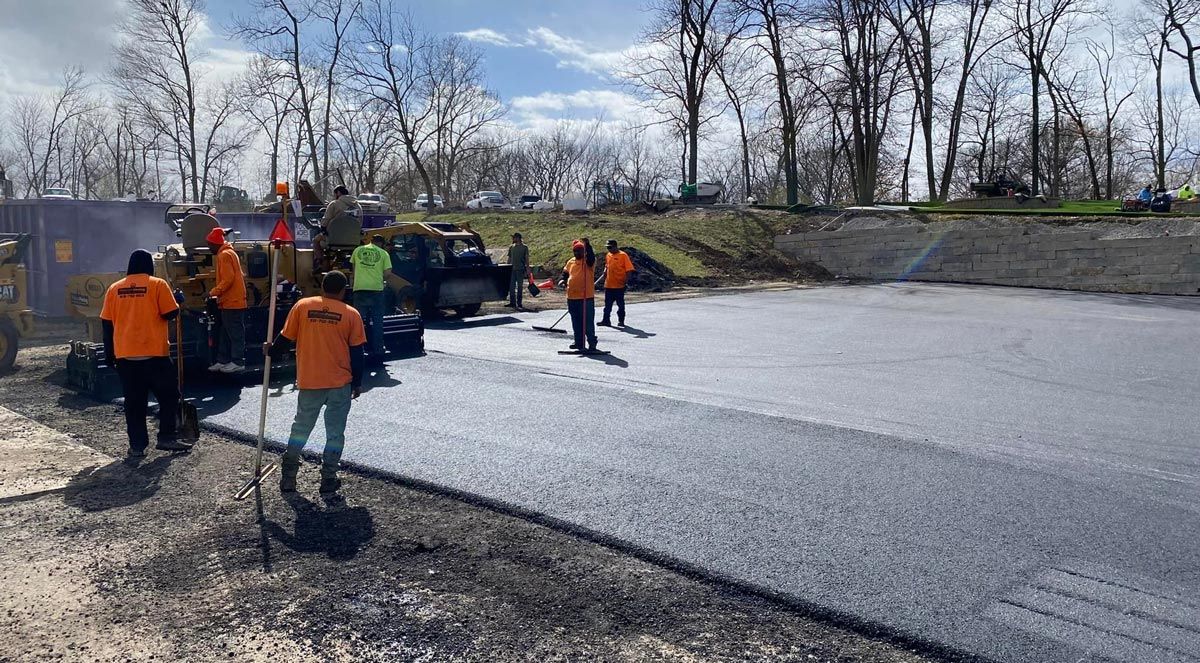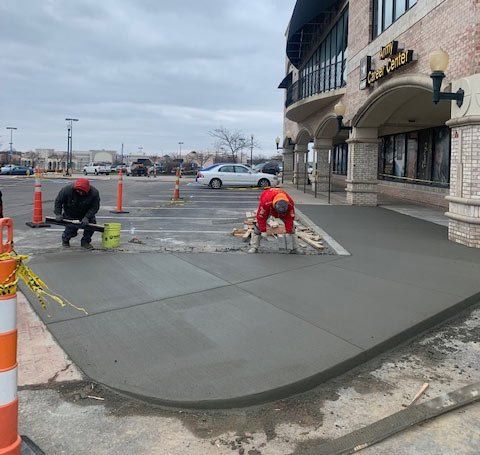Introduction
When it comes to maintaining the aesthetic appeal and functionality of residential communities, asphalt paving plays a crucial role. As homeowners associations (HOAs) and subdivisions continue to grow in popularity across the United States, understanding the ins and outs of asphalt paving is vital. From driveway installations to parking lot striping, this comprehensive guide will cover everything you need to know about asphalt paving for HOAs and subdivisions.
What is Asphalt Paving?
Asphalt paving refers to the process of laying down asphalt material to create smooth surfaces for roads, driveways, parking lots, and more. This durable material is made from a mixture of aggregates (like sand and gravel) combined with asphalt cement. Its benefits include durability, cost-effectiveness, and ease of maintenance.
1. Benefits of Asphalt Paving for HOAs
1.1 Cost-Effectiveness
One of the most attractive aspects of asphalt paving is its affordability compared to other materials like concrete. The asphalt paving cost typically ranges between $3 to $5 per square foot, making it an economical choice for large-scale projects.
1.2 Aesthetic Appeal
Freshly paved asphalt can enhance the overall appearance of a community. With driveway paving services available in various designs and colors, homeowners can customize their properties according to their preferences.
1.3 Durability
Asphalt pavements are known for their longevity when properly maintained. With regular repair and sealcoating, an asphalt surface can last 15-20 years or longer.
2. Common Uses of Asphalt in Residential Areas
2.1 Driveway Installation
New asphalt driveway installation often becomes necessary as neighborhoods develop or existing driveways deteriorate over time. Proper installation ensures that the driveway drains well and withstands heavy traffic.
2.2 Parking Lot Paving
Communities often have shared parking areas that require careful planning for parking lot paving. These spaces must accommodate residents while adhering to local zoning regulations.

2.3 Pathways and Sidewalks
Aside from driveways and parking lots, many HOAs may choose to invest in pathways or sidewalks made from asphalt for added accessibility.
3. Understanding Asphalt Paving Services
3.1 Types of Asphalt Paving Services
There are several asphalt paving services available:
- New Construction: Installing fresh asphalt where none previously existed. Resurfacing: Adding a new layer over existing pavement. Repair Services: Fixing potholes or cracks using methods like asphalt crack sealing or patching.
3.2 Choosing the Right Contractor
Selecting qualified asphalt paving contractors is essential for ensuring quality work. Look for companies that provide extensive warranties and have positive customer reviews.
4. Factors Affecting Asphalt Paving Costs
4.1 Size of the Area
The larger the area needing asphalt installation, the higher the overall cost will be due to increased material usage and labor hours.
4.2 Accessibility
If the site poses accessibility challenges—such as steep grades or limited access points—the cost may rise due to additional labor requirements.
4.3 Material Quality
Using high-quality materials will increase upfront costs but can save money on long-term maintenance needs.
5. Maintenance Requirements for Asphalt Pavements
5.1 Regular Inspections
Regular assessments help identify issues early on before they escalate into costly repairs.
5.2 Sealcoating Frequency
Understanding how often to perform sealcoating is vital; generally, it should be done every 2-3 years depending on traffic levels.
6. Asphalt Driveway Installation Process
Installing an asphalt driveway involves several key steps:
Preparation: Clear vegetation and debris. Grading: Ensure proper drainage by grading the soil. Laying Base Material: Add crushed stone or gravel. Applying Hot Mix Asphalt: Pour hot mix asphalt evenly across the base layer. Compaction: Use rollers to compact the surface.Each step requires precision; otherwise, homeowners risk facing future issues such as cracking or water pooling.
7. Understanding Driveway Resurfacing vs Repaving
While both methods aim at restoring damaged driveways, they differ significantly:
- Resurfacing involves applying a new layer over existing pavement if it's not severely damaged. Repaving entails removing old pavement entirely before laying new material down—a more expensive but sometimes necessary option.
8 FAQs About Asphalt Paving for HOAs and Subdivisions
FAQ 1: How much does asphalt paving cost per square foot?
The average cost ranges from $3-$5 per square foot but can vary based on materials used and local labor rates.
FAQ 2: How long does an asphalt driveway last?
With proper care—including regular sealcoating—an asphalt driveway can last between 15-20 years.
FAQ 3: What maintenance do I need for my asphalt driveway?
Regular inspections, crack Platinum Paving asphalt companies sealing, patching damaged areas, and sealcoating are recommended maintenance practices.
FAQ 4: Can I install an asphalt driveway myself?
While DIY installation is possible, hiring professional asphalt companies ensures better quality work that complies with local regulations.
FAQ 5: What is sealcoating?
Sealcoating is a protective layer applied over existing asphalt surfaces designed to prevent damage from UV rays, water infiltration, oils, and other harmful substances.
FAQ 6: How often should I sealcoat my driveway?
Typically every 2-3 years; heavier traffic areas may require more frequent treatment.


Conclusion
In summary, understanding "Asphalt Paving for HOAs and Subdivisions" means knowing its benefits, costs involved, types of services available, as well as maintenance requirements crucial for longevity—especially when dealing with sizeable residential communities where aesthetics meet functionality head-on! By investing time into researching reputable contractors while being proactive about maintenance needs through methods such as sealcoating or timely repairs; homeowners associations can preserve property values effectively while creating safer environments that foster community living at its best!
When searching for solutions tailored specifically towards your neighborhood's unique needs concerning driveways or shared spaces alike—remember that choosing high-quality materials paired with experienced professionals makes all difference in achieving desired results! So whether you’re contemplating new installations or exploring options like resurfacing versus repaving; take these insights onboard so you’re better equipped moving forward!
This article serves as a comprehensive guide on "Asphalt Paving for HOAs and Subdivisions." Each section provides valuable information tailored toward helping HOAs make informed decisions regarding their pavement needs while highlighting essential factors influencing costs associated with these projects—all critical components worth considering before embarking on any such endeavors!
Feel free to reach out if you have further questions about this topic!